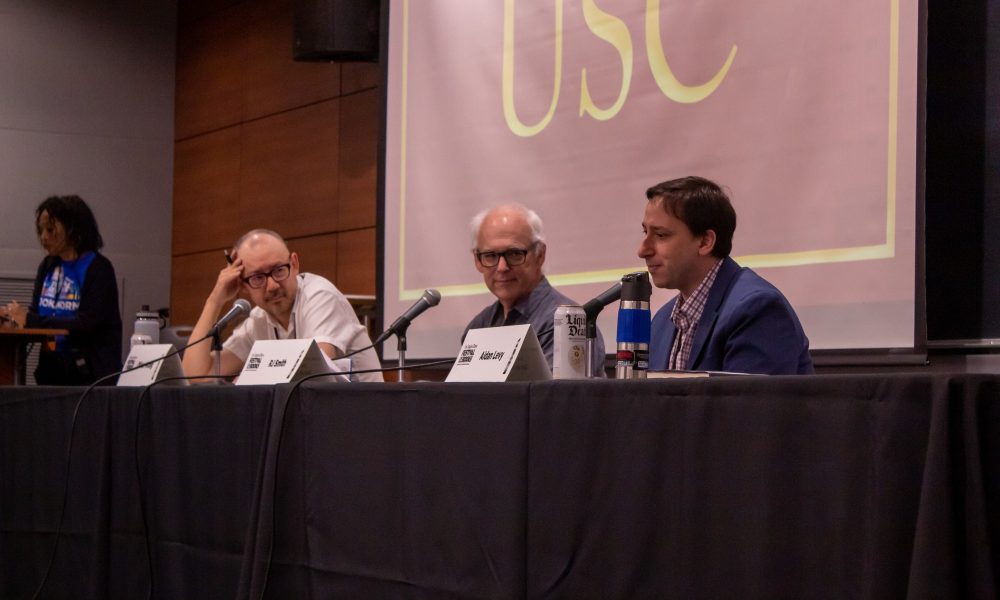One of Long Beach State’s own faculty, professor Oliver Wang from the Department of Sociology, lead a panel with historical music biographers, R.J. Smith and Aidan Levy, at the L.A. Times Festival of Books on Sunday.
The panel, “Biography: 20th Century Musical Pioneers and Their Legacies,” highlighted Smith’s journey in authoring the biography of Chuck Berry, the Father of Rock and Roll and Levy’s own experience writing the biography of Sonny Rollins, a Grammy-award winning saxophonist.
Wang launched the discussion with a series of questions, one of which included how each author approached writing their novel, considering Berry had died before Smith began writing his book and Rollins is still alive at the age of 92.
“First thing, the book would’ve been significantly shorter had [Rollins] not been alive,” Levy said. His book “Saxophone Colossus: The Life and Music of Sonny Rollins” is over 760 pages in print.
The original manuscript was nearly twice as long, Levy said, before he and Rollins went through each chapter together in multiple three-hour long conversations. Levy said he experienced “enormous trepidation” at the thought of presenting the manuscript to the three-time Grammy award winner.
“Having a living subject, I would say, yes, it creates a lot of anxiety,” Levy said. “However, when I began the project, I would not want to move forward if Sonny was not participating.”
In his own response, Smith said he “could not have written anything like this book in Chuck Berry’s lifetime.”
“Musicians, friends, neighbors, certain family would not have wanted to cross Chuck Berry,” Smith said.
The biographer said he very much wanted the experience of writing a biography on someone who was alive, as he did on Robert Franks, though Franks contributed little to the novel.
There are benefits, however, to writing a biography after a celebrity has died, Smith noted, such as not having to worry about a potential lawsuit if the celebrity found an issue with the book.
“The idea of [writing a biography] feels so daunting,” Wang said. “How do you figure out you have enough details?”
Smith said he often realized the questions he needed answered after he began writing the book and it was when the biggest questions were satisfied that he knew the book was ready.
“If I don’t know something I need to know, then it’s not done,” Smith said.
Both biographers attested to the responsibility of not only bringing the stories of Berry and Rollins to life, as Black culture contributed greatly to the shape of American music today, but doing so in a way that gave the stories justice.
“With Chuck Berry, you could be in his band for ten years. You might have something to say, but you probably didn’t say it,” Smith said. “That dictated my approach to the subject.”
Smith said he had to rely on his own interpretation more than he would have liked to understand the research and interviews he conducted to best sculpt the life of the Father of Rock and Roll.
For Levy, he noted Rollin’s 1958 album, “Freedom Suite,” and said “it was the first civil rights-themed album of the hard rock era.” Levy said he was inspired by the editorial interviews he had with Rollins, whom he considered an icon both in the jazz world and globally, which lead to him to dive deeper into Rollins’ story.
“He said American culture is defined by Black culture,” Levy said. “It’s humor, it’s music, it’s colloquialisms.”




